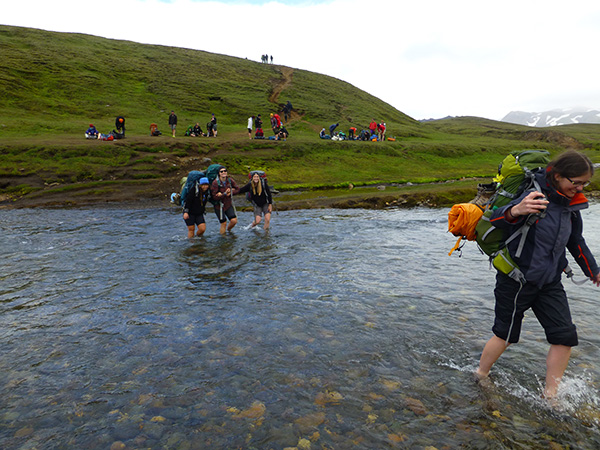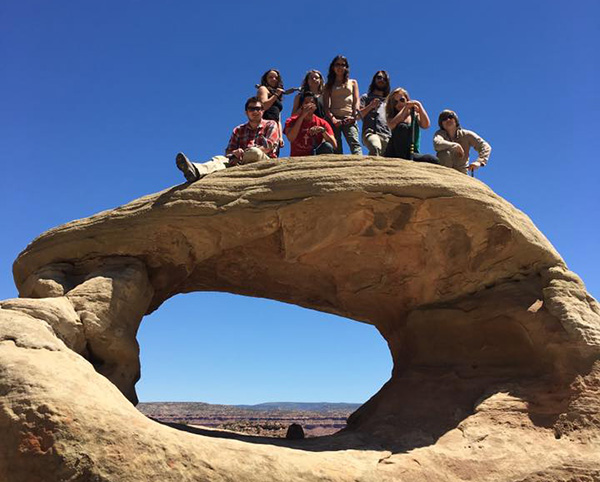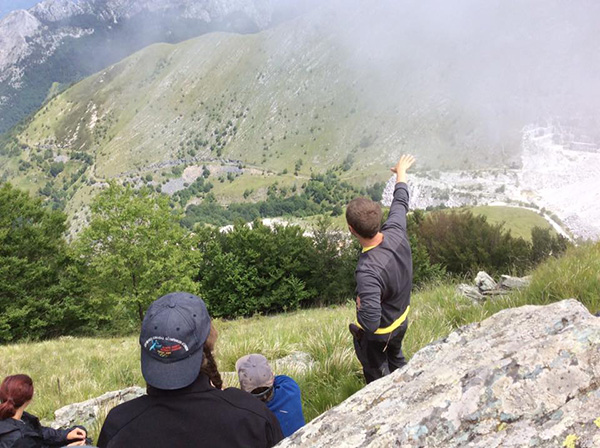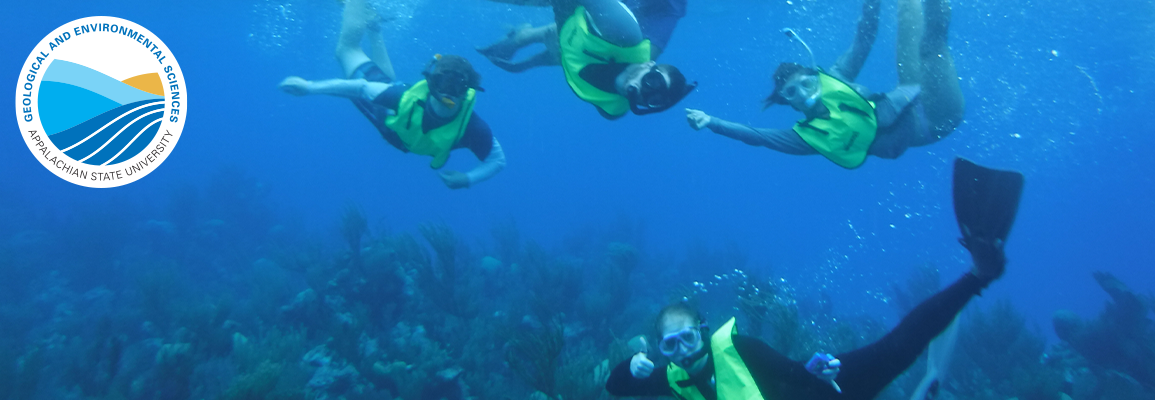We offer the following field-based courses:
- GES 1103 - Environmental Change, Hazards, and Resources (aka "Iceland Trip"):
- GES 2857 - Paleontology Field and Museum Methods (aka "Triassic Trip")
- GES 3810 - The reef environment and geology of modern carbonate systems (aka "Bermuda Trip")
- GES 4835 - Summer Field Geology (aka "Field Camp")
GES 1103 - Environmental Change, Hazards, and Resources (aka "Iceland Trip"): The Department has an international, field-based version of the introductory course GES 1103 (Environmental Change, Hazards, and Resources) in Iceland each summer (GES 1103 - Land of Fire and Ice). Students earn credit for GES 1103 (in General Education or towards the GLY major or minor) with optional HPC-2545 credits (Effective Leadership and Group Development in International Expeditions). Advanced students can earn credit as GES 2500. Contact: Brian Zimmer

GES 2857 - Paleontology Field and Museum Methods (aka "Triassic Trip"): The "Triassic Trip" typically takes place in early summer. It combines paleontological field and museum work in the desert southwest region of the US. This class requires multiple nights in the field collecting geological and paleontological data followed by time at a natural history museum preparing fossils and archiving data. This class is physically demanding and may include exposure to extreme weather events. Contact: Andy Heckert

GES 4835 - Summer Field Geology (aka "Field Camp"): This program takes place throughout the Northern Apennines in Italy and (as of 2021) also in the mountains of western Montana. The Italy course is typically offered every other year. Contacts: Dr. Gabe Casale, Dr. Jamie Levine, Dr .Cole Edwards

Italy Field Camp: Over the course of the 6 weeks spent in Italy, student participants will learn the stratigraphy of the Northern Apennines, construct geologic maps and associated cross-sections within fold and thrust belts, and in regions that have experienced extension. Students will write up reports summarizing the major findings from mapping and a geologic/structural history of each mapping area. The program will begin with several field trips to key outcrops where the Northern Apennine stratigraphy is beautifully displayed and students will see several world famous outcrops, including the K/T boundary near Gubbio. Participants will do 5 different field mapping projects; each will be progressively more difficult than the last and the final mapping project will be the combination of all previous mapping activities into a coherent picture of the tectonic evolution of the Northern Apennines. In addition to field mapping, students will map alongside Italian students for 2 projects in the middle of the field course, which will provide an opportunity to learn some Italian and to meet some Italian peers. There will be several days off from geology where participants will have time to explore Italian art and culture and see some of the visually stunning cities and towns of the Northern Apennines. For more information on our field camp in Italy, click here.
A fund has been created to offset student costs of participation in Italy Field Camp. To support future field camp students, please donate today!
Montana Field Camp: This is a new field camp designed in response to the COVID-19 pandemic, where students spend 6 weeks learning how to map geologic outcrops and features in a variety of ways (both in the field and via computers). Students first learn how to complete geologic maps on GIS using satellite imaging, LiDAR and DEMs. They then travel to Montana to spend 3 weeks mapping glacial landforms, deformed units, and checking out active faults and the landscapes they create. Students spend time visiting national parks and historic sites on the way to and from the field area. In the future, this field camp format may change considerably. For more information on our field camp in Montana, click here.
